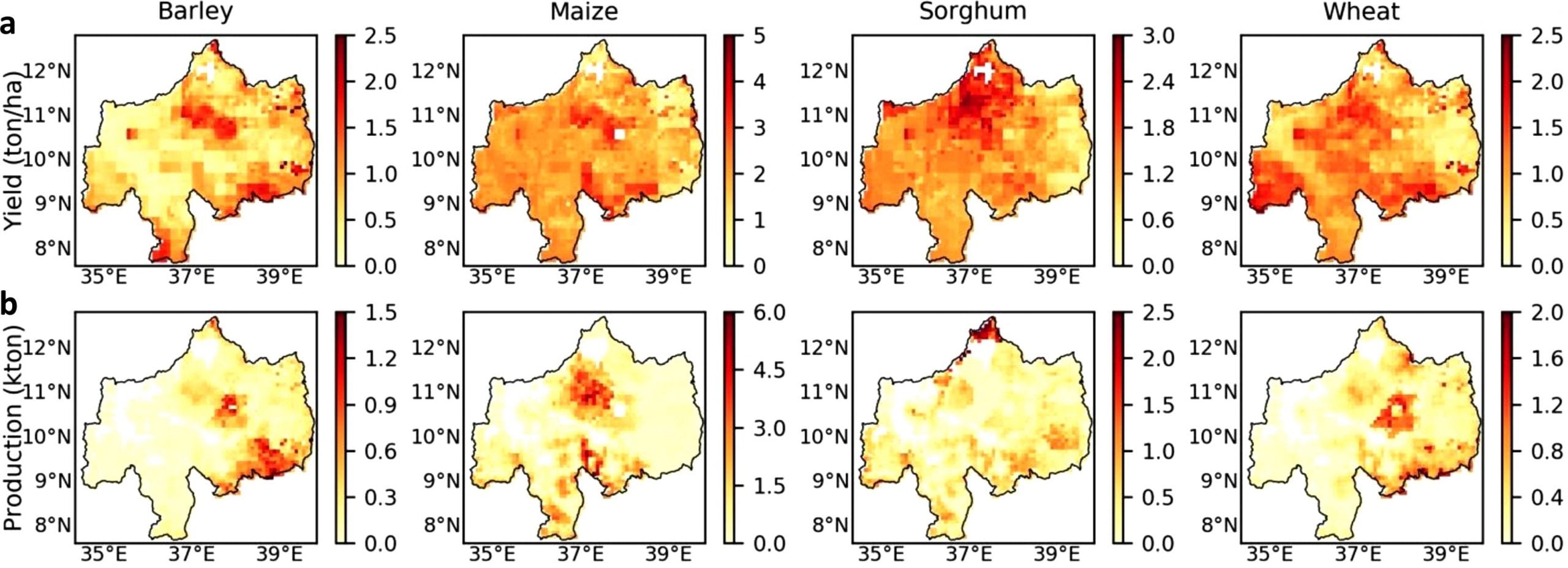After having a break due to the pandemic in 2020, UConn organized its in-person commencement On May 8th, 2021, where Meijian Yang, a UConn Environmental Engineering PhD student, representing the NSF PIRE Water and Food Security Ethiopia project received his doctoral graduation award. He is one of the first students to complete his PhD degree from PIRE project.
Meijian successfully defended his PhD dissertation on April 5th, 2021, which emphasized on research works pertaining to crop modeling in the Upper Blue Nile region. His research outputs have been effectively used to predict seasonal forecasts on crop yields for the selected communities in Ethiopia, and helped the project excel in multiple directions. Meijian started at UConn in Fall, 2016. Before coming to UConn, he received his Master’s degree from the China Institute of Water Resources and Hydropower Research and Bachelor’s degree from North China Electric Power University.

Meijian’s research, supervised by Dr. Guiling Wang, a UConn Environmental Engineering professor, focuses on advancing the understanding on crop response to hydrometeorological variability and make crop yield predictions in Ethiopia. To achieve this objective, he first calibrated and validated a process-based crop model (Decision Support System for Agrotechnology Transfer, DSSAT) for five cereal crops – barley, maize, millet, sorghum, and wheat at both the site and agroecological-zone scales. Then using the calibrated model, he investigated the impact of past climate variability and trend on crop yield, quantified the effect of planting time soil wetting on crop yield as a strategy to mitigate crop loss, developed an analog model for seasonal crop yield forecast, and assessed long-term crop yield changes using DSSAT driven with downscaled climate projections.

During a personal interview with Meijian, he mentioned, “PIRE helped in many aspects of my research. First, PIRE provided rich resources to my research including data, model, computational and literature resources, which greatly advanced my research progress. Second, PIRE helped me developing an interdisciplinary and more advanced research through collaboration with researchers with different expertise. Third, PIRE helped disseminating my research work to scientific researchers, local farmers and agencies and promoted my communication and presentation skills through a variety of meetings and fieldworks.”

He also mentioned, “After accomplishing my PhD, I firstly feel relieved for a moment. Then, I start to realize that PhD is not simply a degree but a responsibility of pursuing higher level of scientific research and contributing to the society. So now I’m getting even busier and more stressed with my next step research.”
On behalf of the PIRE team, we wish him all the best for his future endeavors!